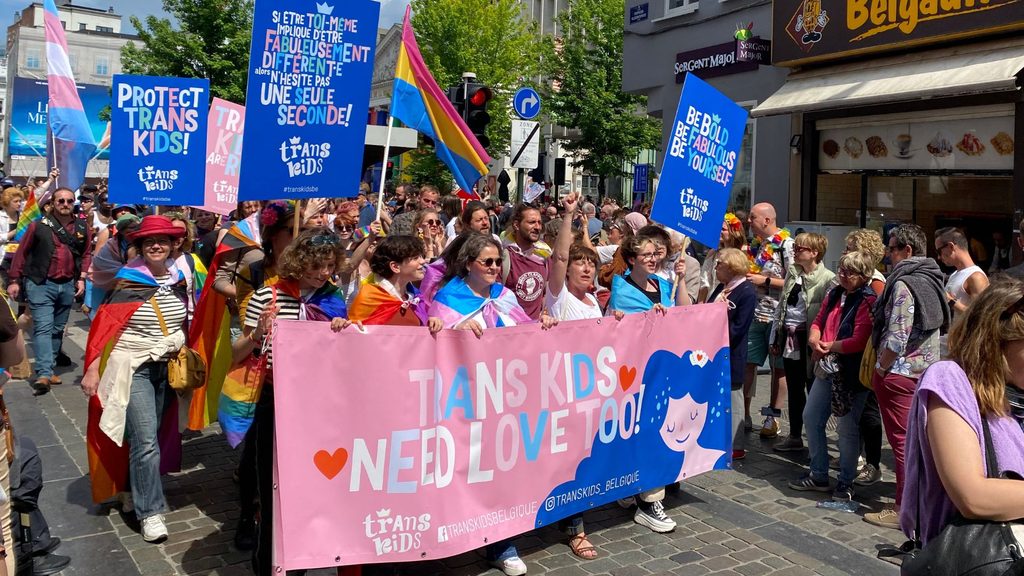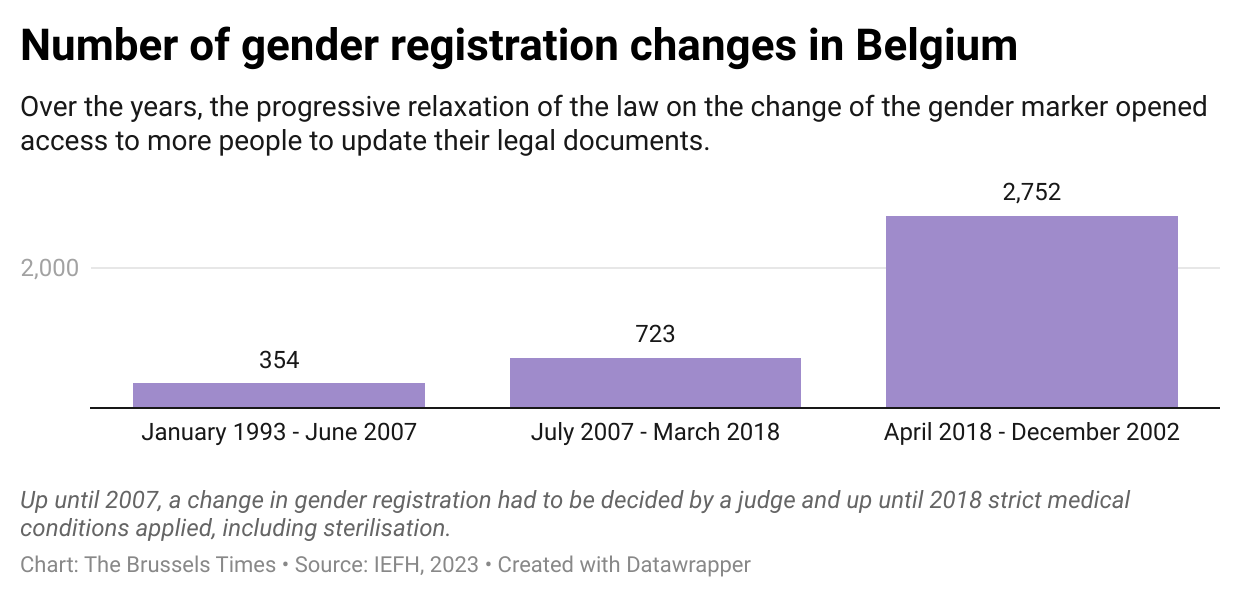569 Belgians changed the gender marker on their identity card to match their gender identity in 2022, the Institute for the Equality of Women and Men reported on Thursday, based on data from the National Register.
Almost 4,000 Belgians have taken this step since 1993. Since 2018, transgender people in Belgium have been able to change the gender marker on their documents without having to meet certain medical requirements.
Last year, 284 transgender men and 285 transgender women updated their gender markers. On average, transgender men were 26 years old at the time of the official change and transgender women were 35 years old.
The report notes that the eldest people to have changed their gender were an 89-year-old transgender woman and a 75-year-old transgender man.
The Institute for the Equality of Women and Men noted that the easing of strict gender registration laws has opened access for more transgender people to update their legal documents, but that they still face discrimination on a daily basis.
A recent study from the Institute found that 75% of transgender people have been the target of insults in public, with a third of respondents saying that it happens to them on a regular basis. 50% of transgender people report having been followed in the streets and nine out of ten have been victims of violence in the street.
Since 1 January 2018, it has been possible to change official gender markers by making two declarations to the civil registrar. Certain strict medical prerequisites – such as the sterilisation requirement – have also been removed. As a result, almost three-quarters of all changes from the past 16 years took place after 2018.
There are an estimated 55,000 transgender and non-binary people living in Belgium. Last week, lawmakers approved a bill to allow people to change their gender several times and removed the requirement for a second declaration.
"For part of the transgender community, being able to choose their gender registration is important because it is an administrative recognition. In addition to tackling the administrative aspect, the Institute continues to defend the rights of transgender people as well as their acceptance by society," said the Director of the Institute for the Equality of Women and Men, Michel Pasteel.
The Institute welcomes the new procedure, which makes it possible to request multiple gender marker changes, but signals that Belgian law still has a blind spot for gender-diverse citizens. "All that remains is to make it possible to register the gender of non-binary people because not everyone feels comfortable in one of the two M or F boxes," said Pasteel.


